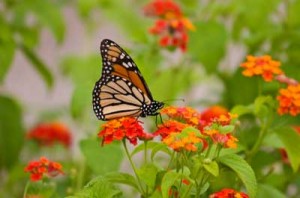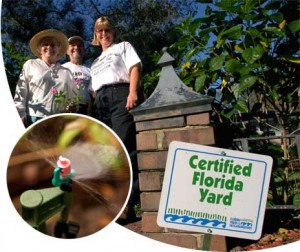If you’re like most people that live in the Central Florida area, you probably weren’t born here. Us “transplants” have had to adapt to many things that come along with living in Central Florida, and one of those is how and what we garden! The hot and wet climate we live in can be a challenge for finding what plants will work and look best in your yard. We here at John Madison Landscape are experts at letting you know what options you have in your outdoor space, while taking your own preferences into account. Growing your own “Florida-friendly” yard will guarantee you less time and energy spent maintaining and replacing your plants year-round. Read here to find out how to make your outdoor space low-cost, low-maintenance, and attractive, while adding value to your community!
- Be sure you’re using the right plants, and also planting them at the right time. Does your yard demand plants that are tolerant of the cold, wind, full sun, shade, or occasional flooding? Walk around your property, noting conditions that make your yard unique, which may be different in different areas of your lawn. If you select suitable plants for your landscape, they are more likely to thrive.
- Water efficiently. A truly efficient way to use water in your yard is to design a landscape that thrives predominantly on rainfall. Even if your yard includes a lawn or specialty garden, it is possible to design it so that you only need to water the plants as needed once they are established.
- Fertilize appropriately. Fertilizers can be hazardous to both the health of your yard and the environment when they are misused and overused. Try purchasing slow-release fertilizers; they are available to plants over a longer period of time, and less nutrients are wasted or lost as pollutants. Also, do not exceed the rate of 1 pound of nitrogen per 1,000 square feet per application.
- Don’t be afraid to use mulch. Organic mulch improves soil fertility as it decomposes, which reduces the need for fertilizers. Mulch can also help maintain soil moisture by reducing evaporation; therefore using less supplemental irrigation.
- Use your outdoor space to attract wildlife. Animals love trees and shrubs that are native to this part of the country. Here at John Madison Landscape, we actually have a garden package designed specifically for attracting butterflies. Bird baths are another way to interact with birds and small animals in your garden.
- Control your yard pests properly and responsibly. Check plants regularly, know the good from the bad, and try non-chemical approaches and least toxic pesticides first, such as insecticidal soaps or horticultural oils. If
 chinch bugs or weeds are the problem, don’t treat the entire lawn, only the affected area.
chinch bugs or weeds are the problem, don’t treat the entire lawn, only the affected area. - Be sure to recycle. Try recycling grass clippings, leaves, and yard trimmings rather than throwing them away. By recycling yard debris, you gain free mulch, while returning valuable nutrients to the soil. You can also help the earth by grouping plants according to their irrigation needs to avoid unnecessary watering.
- You’ll want to reduce the stormwater runoff; that is, water that doesn’t soak into the ground where it falls, especially when it rains. Where possible, direct rain gutters and downspouts to drain onto the lawn, plant beds, or containment areas, where the rain will soak into the soil rather than run off the yard into waterways.
- For waterfront property owners, protect the water by reducing the amount of runoff that picks up pollutants and carries them into the waterway. One way is by using porous materials such as mulch or gravel instead of asphalt or concrete for patios, driveways, and walkways.
For more tips on how to make your outdoor space Florida-friendly, or to schedule an appointment for a free estimate, click here or call us at 407-935-9151.


0 Comments